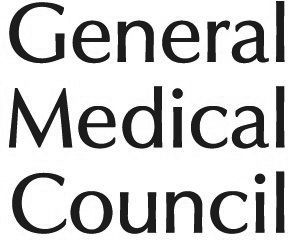Mr Shashank Gurjar, Laparoscopic Colorectal & General Surgeon
Mr Shashank Gurjar
Laparoscopic Colorectal & General Surgeon
Mr Shashank Gurjar MA(Hons), MBBS, MSc (Surgical Sciences), FRCS (Gen Surg), Diploma in Medical Education
Laparoscopic Colorectal & General Surgeon
Mr Shashank Gurjar
Laparoscopic Colorectal & General Surgeon MA(Hons), MBBS, MSc (Surgical Sciences), FRCS (Gen Surg), Diploma in Medical Education
Areas of expertise
- Colonic surgery (bowel cancer, diverticular disease)
- Coloproctology (haemorrhoids, fistulas & fissures)
- Inflammatory bowel disease
- Keyhole abdominal hernia surgery
- Pelvic floor dysfunction

Recommendations for Mr Gurjar
These recommendations are for information purposes only. Doctors providing recommendations do so in good faith and are not responsible for clinical outcomes.












Recommended by:
Make an appointment
Address
-
Devonshire Diagnostic Centre
16 Devonshire Street, Marylebone, London, W1G 7AF
-
The Harley Street Clinic
35 Weymouth Street, London, W1G 8BJ
Luton And Dunstable University Hospital NHS Foundation Trust
Lewsey Road, Luton, Bedfordshire, LU4 0DZ
About Mr Shashank Gurjar
I am a full-time consultant surgeon at the Luton & Dunstable Hospital (NHS) where I have a specialist interest in colorectal and emergency general surgery.
My areas of expertise include colorectal cancer, diverticular disease, inflammatory bowel disease (IBD) surgery (Crohn's disease & Ulcerative Colitis), open and keyhole abdominal hernia repair, anal fissure management, fistula surgery (including fistula laser surgery), open and keyhole bowel cancer surgery and complex colorectal surgery. He is also an accredited endoscopist. I also offer surgical treatment options for haemorrhoids including THD and Rafaelo procedure.
My specialist training in pelvic floor dysfunction allows me to offer patients appropriate surgery for rectal prolapse and effective management of evacuatory disorders. I have an active private practice.
I qualified in medicine from St Mary's Hospital, London in 1997 and then completed basic surgical training in the King's College surgical rotation. I did my research at the Royal Free Hospital and University College, London. I underwent specialist surgical training (colorectal surgery) in the South East Thames region. I completed my training with a senior post- Certificate of Completion of Training (CCT) fellowship in Pelvic Floor surgery at John Radcliffe Hospital, Oxford.
I have an interest in clinical surgery and pelvic floor dysfunction, and have published papers in peer-reviewed journals on topics such as ‘Mesorectal thickness as a marker of difficulty in laparoscopic rectal surgery’ and patient safety matters. I am a member of the Britsh Medical Association, American Society of Colon and Rectal Surgeons, European Society of Coloproctology, Association of Surgeons GB and Ireland and Association of Coloproctology of GB and Ireland. I actively train young surgeons in keyhole surgery, as well as teaching medical students attached to Luton and Dunstable Hospital.
I enjoy sport, especially football, cricket, tennis and golf. I have a passion for travel, and enjoy scuba-diving. I am also fond of reading, whether medical literature or current affairs.
Areas of expertise
- Abscess (incision and drainage)
- Appendicectomy
- Colonic surgery (bowel cancer, diverticular disease)
- Coloproctology (haemorrhoids, fistulas & fissures)
- Colorectal cancer
- Colorectal surgery
- Complex colorectal surgery
- Crohn’s disease
- Dermatology
- Diverticular disease
- Emergency general surgery
- Evacuatory disorders
- General surgery
- Hernia repair
- Inflammatory bowel disease
- Keyhole abdominal hernia surgery
- Minimally invasive procedures
- Pelvic floor dysfunction
- Pelvic floor surgery
- Rectal prolapse
- Surgical oncology
- Ulcerative colitis
Frequently asked questions
What are the common symptoms that your patients tend to present with?
I'm a colorectal and general surgeon, so most of the patients who come to me are patients with common coloproctology problems, such as rectal bleeding or haemorrhoids, fissure and fistulas. These form the significant bulk of my practice.
The other common condition that I see are hernias of the abdominal wall. These are patients with inguinal hernias, femoral hernias, umbilical hernias, epigastric hernias or incisional hernias. I offer a keyhole repair of most of these types of hernias as well as open repair if required.
I also manage patients with diverticular disease and inflammatory bowel disease such as Crohn's and ulcerative colitis.
I also see colorectal cancer patients.
What are the treatments that you're able to offer your patients?
If we look at hernias, I can offer them both keyhole and open repairs. My preferred option is the keyhole approach for inguinal, femoral and umbilical hernias where required. I tend to use the totally extraperitoneal technique, although I do offer the TAPP technique which is the transabdominal approach.
In terms of haemorrhoids, there are a number of options available, including the old-fashioned open Ligasure technique or the THD (transanal hemorrhoidal dearterialization) repair. Nowadays I use the Rafaelo technique.
In terms of fistulas, I offer a range of treatments, including seton placement, lay open, the LIFT technique and also the laser fistula technique which we've been doing for the last 18 months.
In terms of cancer and diverticular disease, I can offer dissections, both keyhole and open, and it all depends on what's required. I have done a couple of pouch cases where we take out the whole of the colon and create an ileal pouch or on patients whose disease requires the removal of the whole colon.
What are your areas of sub-specialist interest?
I trained as a pelvic floor specialist, having done a fellowship in Oxford. That's an area that I do offer, for usually women, who tend to present with problems such as obstructive defecation as a consequence of childbirth in their younger years. These are patients who have difficulty in evacuating their bowels. I can offer them an understanding of how to best approach this problem.
In terms of treatments, they tend to be conservative, while there are a few patients who require surgery. In the instance where a patient requires surgery, I do offer surgical treatments using laparoscopic techniques. Alternatively, I can offer local hernial repairs for prolapse such as the Delorme's procedure.
Professional memberships





Articles by Mr Shashank Gurjar
PTU-199 A regional assessment of perineal wound complications after abdomino-perineal excision of the rectum
Abdominal actinomycosis after laparoscopic cholecystectomy: an uncommon presentation of an uncommon problem
Mycotic aneurysm of the posterior tibial artery – a rare complication of bacterial endocarditis: a case report


 Instant booking
Instant booking













































